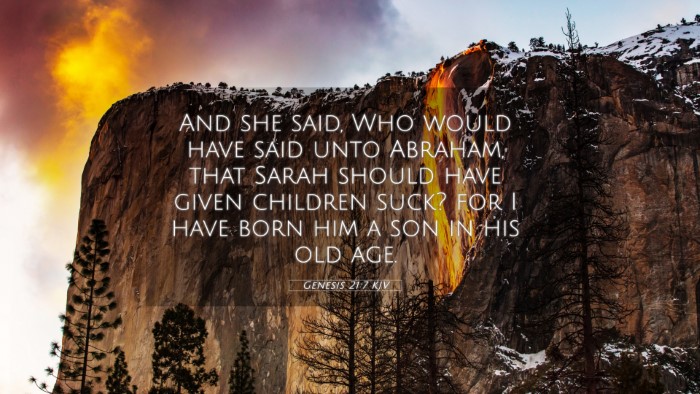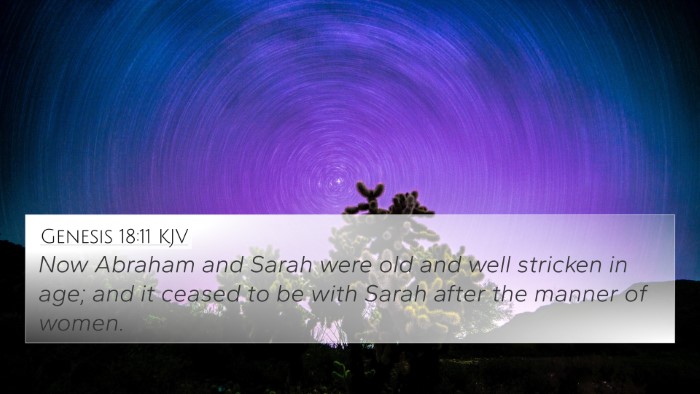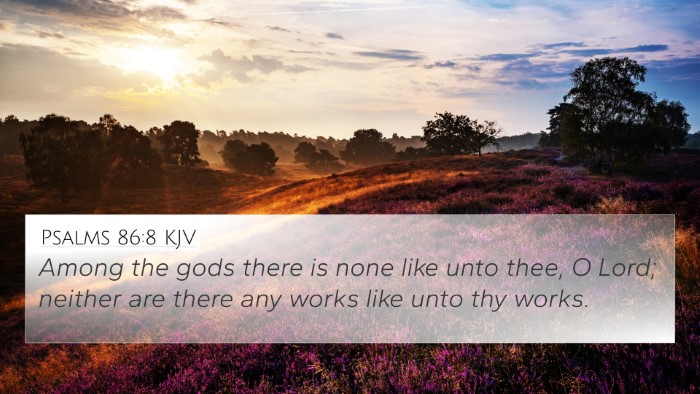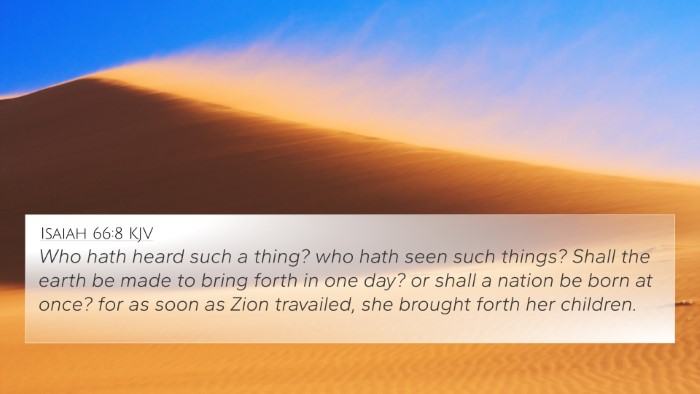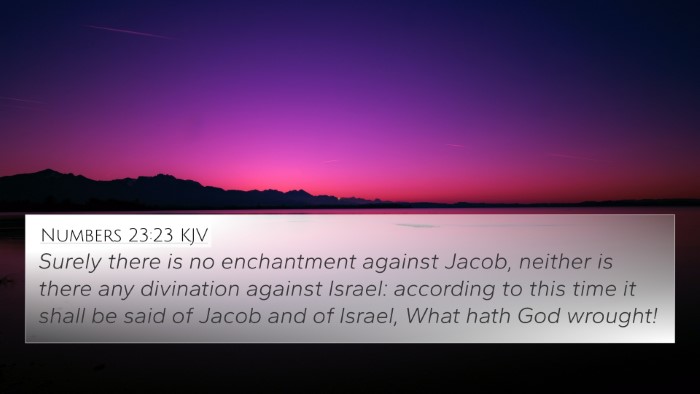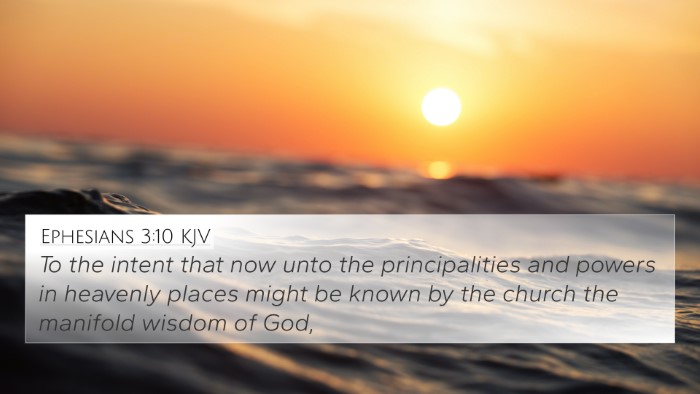Understanding Genesis 21:7
“And she said, Who would have said to Abraham that Sarah would nurse children? For I have borne him a son in his old age.”
This verse encapsulates the profound joy and surprise of Sarah upon the birth of Isaac. Through a combined interpretation of public domain commentaries, we can explore the deeper meanings and connections of this scripture.
Contextual Background
The birth of Isaac signifies not only the fulfillment of God’s promise to Abraham and Sarah but also reflects the theme of divine intervention in human affairs. At an advanced age, the improbable nature of Sarah's pregnancy underscores the miracle of God’s power to defy natural laws.
Key Themes and Insights
- Divine Promise Fulfilled: This occasion marks the realization of the long-awaited promise made to Abraham (Genesis 17:16).
- Joy and Surprise: Sarah’s exclamation reveals her astonishment; it reflects human emotions in the face of divine actions.
- Human Limitations: The phrase “in his old age” emphasizes human limitations and God’s ability to operate beyond them.
- Motherhood and Identity: Sarah’s joy is not only personal; it speaks to her identity and role as a mother in God's plan.
Bible Verse Cross-References
Genesis 21:7 relates to several important scriptures that enhance its meaning and context:
- Genesis 17:16: The original promise of a son to Abraham and Sarah.
- Genesis 18:10: The Lord's declaration of Sarah bearing a son.
- Romans 4:19-21: Paul’s discussion on Abraham's faith in God’s promises despite his old age.
- Hebrews 11:11: Sarah’s faith in receiving strength to conceive.
- Isaiah 51:2: Reflecting on Abraham's lineage and Sarah’s joy in the context of God's promises.
- Luke 1:37: “For with God, nothing shall be impossible,” resonating with Sarah's experience.
- 1 Peter 3:6: Acknowledging Sarah as an example of faith in God.
Comparative Bible Verse Analysis
By linking this verse with others, we can uncover patterns of divine interaction in the lives of key biblical figures. For instance, the stories of Elizabeth (Luke 1:57-66) and Mary (Luke 1:30-35) echo similar themes of miraculous births and divine promises being fulfilled in unexpected circumstances.
Thematic Bible Verse Connections
Throughout scripture, God’s faithfulness to his promises and the concept of miraculous provision emerge as recurrent themes. In Genesis 21:7, Sarah’s astonishment is a pivotal example that illustrates these themes.
Tools for Bible Cross-Referencing
Enrich your study of Genesis 21:7 through these methods:
- Bible Concordance: Use a Bible concordance to find key terms and phrases related to promise and faith.
- Bible Cross-Reference Guide: Implement cross-reference tools that help connect similar scripture passages.
- Cross-Reference Bible Study: Engage in methods that analyze interconnections between various parts of scripture.
- Comprehensive Bible Cross-Reference Materials: Use books and online resources to delve deeper into comparative analyses of scripture.
User Intent Keywords and Practical Applications
As you study Genesis 21:7, consider some user-focused questions:
- What verses are related to the miraculous nature of births in the Bible?
- How do the promises made to Abraham connect with New Testament teachings?
- Similarities between Genesis 21 and the birth narratives in the Gospels.
Conclusion
In conclusion, Genesis 21:7 stands as a testament to God’s faithfulness in fulfilling His promises amidst human doubts. The insights drawn from various commentaries and cross references allow for a comprehensive understanding of the text, enhancing one's spiritual reflection and study.

